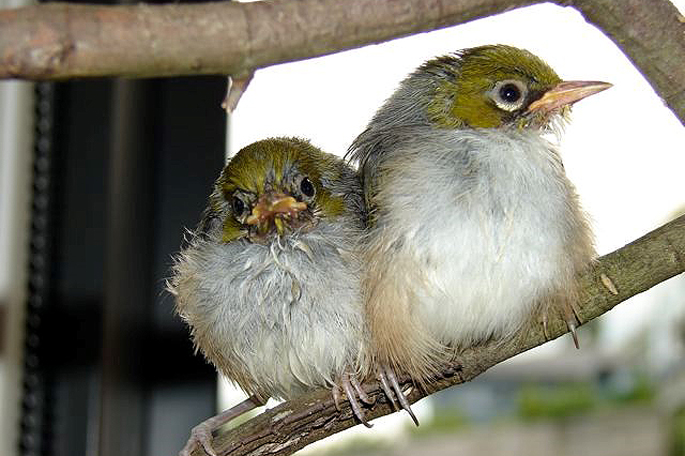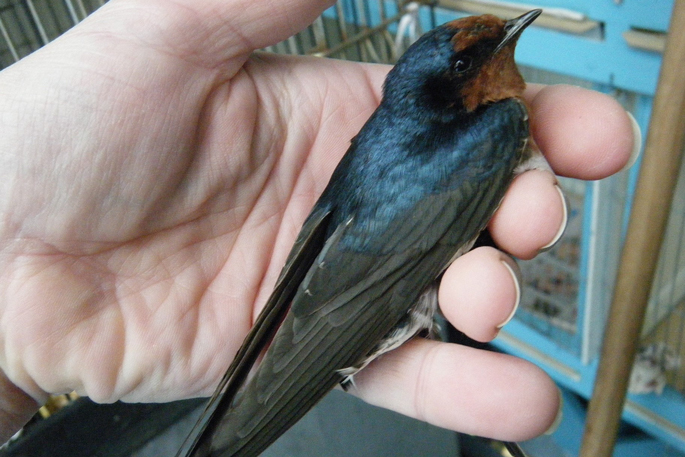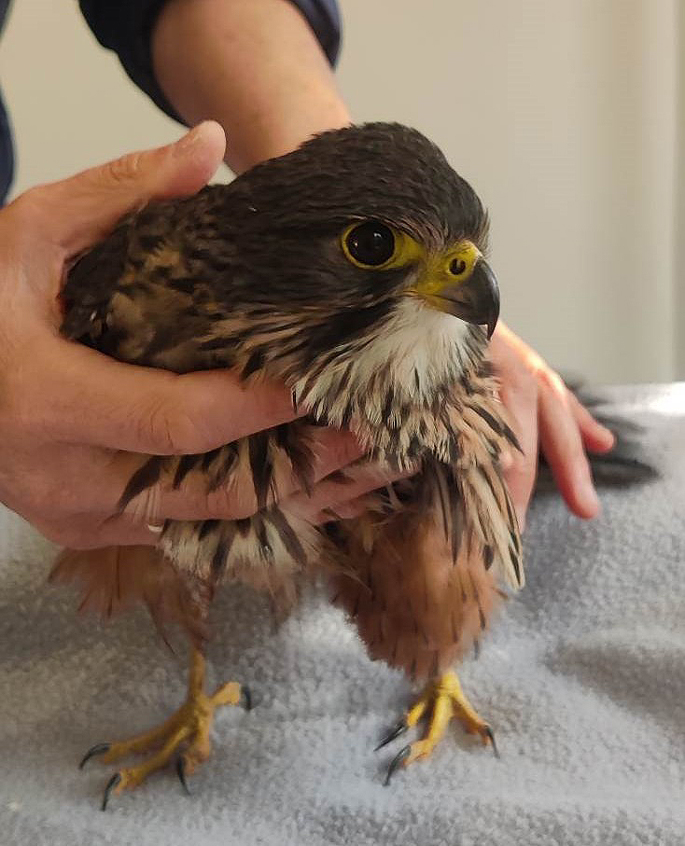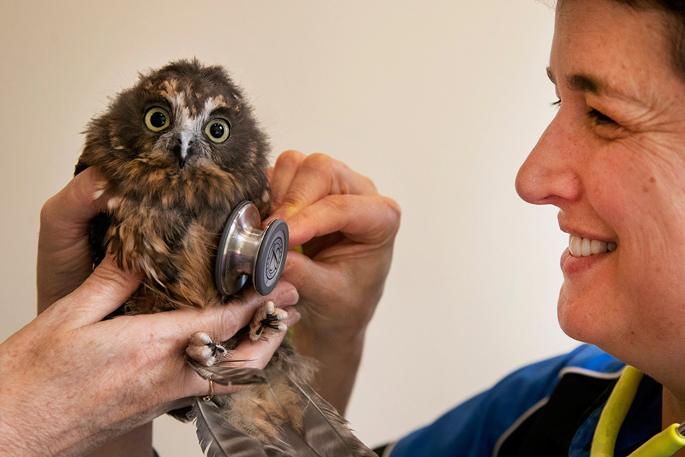While you’re out enjoying your summer holiday, there might be winged wildlife critters in need of a helping hand.
Each year Tauranga’s Animal Rescue Rehabilitation Centre Wildlife Trust helps more than 700 birds and other wildlife in our community.
Yet, first this works requires people taking the time to stop, noticing something is wrong with an animal and bringing it in for care.
The Weekend Sun spoke to ARRC Wildlife Trust to find out what you should do if you come across an injured bird during the Christmas break.
 A pair of wax-eyes rescued by ARRC. Photo: supplied.
A pair of wax-eyes rescued by ARRC. Photo: supplied.
First port of call
ARRC Wildlife Trust chairperson Jody Beattie says the first port of call is to call ARRC.
“We can advise over the phone what the best thing to do is. Quite often we’ll just say to people to catch the bird and bring it in to us,” says Jody.
“We can get one of the vets from Holistic Vets to do an assessment of it and make a call whether they think we can rehabilitate it, or whether it will just be kinder to put it to sleep and out of its misery.”
A lot of bird injuries can be caused by cats, says Jody.
Even if you can’t visibly see an injury, birds caught by cats need to brought in and checked by the team.
“It could have puncture wounds under its feathers and it would need to have some antibiotics because cat bites can actually have a lot of germs in them, so for that little bird it can turn into an infection and can then lead to a long, slow death.”
 A swallow in ARRC’s care. Photo: supplied.
A swallow in ARRC’s care. Photo: supplied.
Catching a bird
So what’s the best way to catch an injured bird?
“You want to get a light blanket and gently throw it over the top of the bird so that it can’t flap and injure itself more.
"Then you want to gently scoop it up by its sides, tucking its wings in and holding its wings together.”
 ARRC helps birds of all shapes and sizes – including this hawk. Photo: supplied.
ARRC helps birds of all shapes and sizes – including this hawk. Photo: supplied.
Jody notes to take extra caution if you’re handling a large seabird and other bird species.
“You have to be very careful of the beak – so make sure its head is covered and the beak. Particularly Tuis and Magpies – they have claws and they can actually scratch you quite badly.”
It’s also important to notice the difference between an injured bird, and a young, learning bird. Jody says if you notice a baby bird jumping around in your garden, sit and watch it for a little while to see if its parents are nearby.
“If the parents are there then lock your cats and dogs inside for the rest of the day so they actually get the opportunity to learn to fly other than taking them away from their parents.”
ARRC is located at 56 Fraser St, Tauranga. To contact ARRC call 07 579 9115. For more information and resources, visit: https://www.arrc.org.nz/arrc-success-stories



0 comments
Leave a Comment
You must be logged in to make a comment.